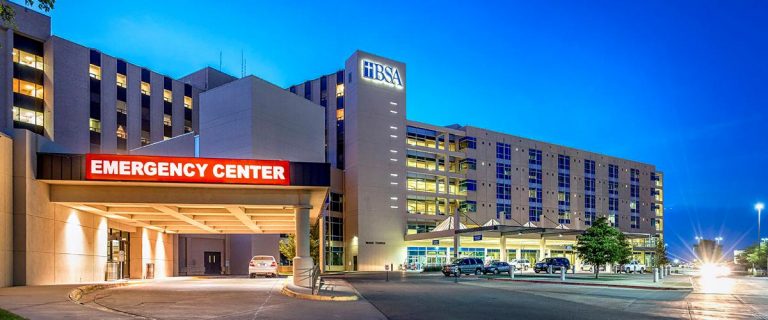How To Treat Hospital Wastewater by Electrocoagulation

In this article, we will discuss the sources of hospital wastewater, the effects of hospital wastewater on the environment, and how innovative electrocoagulation treatment technology can be sustainably used as part of an integrated hospital wastewater treatment system to effectively treat this contaminated wastewater stream.
When people are sick or injured, they typically go to a hospital to seek out treatment from a qualified healthcare practitioner. The number of patients in a hospital at any given time for any number of afflictions can be quite high. People go for cancer treatment, broken limbs, infections, pregnancy, the common cold, flu, snake bites, alcohol poisoning, drug overdoses, burns, organ failure, heart attacks, strokes…
There is a lot of reasons…
There are many causes of illness and injury, and therefore, there are a lot of different materials and methods to treat them. Chemotherapy for cancer, antibiotics for infections and sickness, vaccines for sickness prevention, etc.
All of that is well and good but that isn’t the issue here. Hospitals are kept sanitized and certain chemical and biological wastes are disposed of in a heavily regulated manner. But what about the water? At least, what about the wastewater? Some patients are infected with harmful bacteria and these patients are given cocktails of drugs to help them, but human bodies eventually filter those drugs and bacteria out of the body. Where do they go?
Down the drain…
After that, it mostly depends on the location of the hospital. Hospitals in developed cities and towns are typically connected to a municipal sewer system, that will carry the wastewater to a treatment plant. If they aren’t, then the contaminated water is dumped into a nearby body of water. However, even if the wastewater is sent to a wastewater treatment plant (WWTP), those plants are typically designed for municipal wastewater, and will not be equipped to handle effluent specific to hospitals. Therefore, while a municipal WWTP will handle the domestic wastewater typical of the average home, contaminants specific to hospital wastewater will not be treated appropriately prior to plant discharge.
What kind of Contaminants are we talking about in Hospital Wastewater?
Well, immediately after leaving the hospital, wastewater can contain:
Bacteria and viruses
Pharmaceuticals
Antibiotics
Analgesics
Hormones
Antiseptics
Stimulants
Tranquilizers
Disinfectants and sterilizers
Fecal matter and urine
Radioactive isotopes
Personal Care Products
Heavy Metals
The irony of hospital wastewater is that it can cause problems with human health if not properly treated. Some bacteria that are present in hospital waste are antibiotic-resistant bacteria along with other pathogens that had infected patients. Presence in surface water, can spread diseases even further and resistant bacteria have the potential to breed and mutate and become more difficult to cure in the future.
The impact of pharmaceuticals on human health and marine life is still being monitored and researched, but scientists theorized that long term exposure can cause serious issues on the surrounding ecosystem.
For hospitals that discharge directly into surface water, there are many environmental risks for living organisms. A few scientists have drawn parallels between pharmaceuticals in surface water and altered sex functions in fish indicating that it could cause hormonal imbalances in aquatic life.
Personal care products have also been known to cause issues with aquatic animals. The presence of organic matter can also mean nitrogen and phosphorus are in the wastewater and they can lead to algal blooms that lower the oxygen content of bodies of water and cause fish to die in large quantities in a process called eutrophication.
To prevent these sorts of effects, it is important that measures be taken to ensure wastewater from hospitals is properly treated. This could involve requiring municipal WWTPs to retrofit their existing systems to specifically handle wastewater from hospitals, which may require a separate sewage line or some other way to keep it separate from domestic sewage.
Additionally, regulatory reform could require hospitals to treat their own wastewater on-site to an acceptable level prior to sending it through the sanitary sewer to the municipal WWTP for further treatment or discharging it to surface water bodies.
So what Treatment Technology could be Utilized for this Application?
In recent years, electrocoagulation (EC) has grown in recognition and use as a viable, effective and efficient water treatment method for a wide array of industries. This technology is well equipped to tackle hospital wastewater treatment applications as well. Through the use of electrical current provided to an array of electrodes, the effluent solution is destabilized, allowing particles to coagulate and float to the surface by bubbles formed at the cathode.
EC has the ability to remove and reduce a number of unwanted contaminants from various sources. Such pollutants include emulsified suspended solids, dissolved solids, pathogens, organic and inorganic chemicals, and even particular pharmaceutical residuals.
This paper shows the removal rates of Diclofenac, carbamazepine, and amoxicillin between 70-90% by EC treatment. In this case, EC could be used in an integrated hospital wastewater treatment system for the removal of pathogens and pharmaceutical residuals from hospital wastewater streams.
Electrocoagulation is not only effective, but it is also easy to operate and maintain, typically requiring no additional chemicals for treatment apart from possible pH adjustment or electrode cleaning.
With the lower life cycle cost of Genesis Water Technologies specialized electrocoagulation systems, waterways can be kept safe from pathogens and pharmaceutical drug residues that could potentially harm humans, animals and aquatic life.
Do you want to know more about how specialized electrocoagulation can assist you with your hospital wastewater treatment requirements in your area?
Contact Genesis Water Technologies at 1-877-267-3699 within the US, reach out to our local offices worldwide or contact us via email at customersupport@genesiswatertech.com for a free initial consultation to discuss your specific hospitals wastewater stream.

